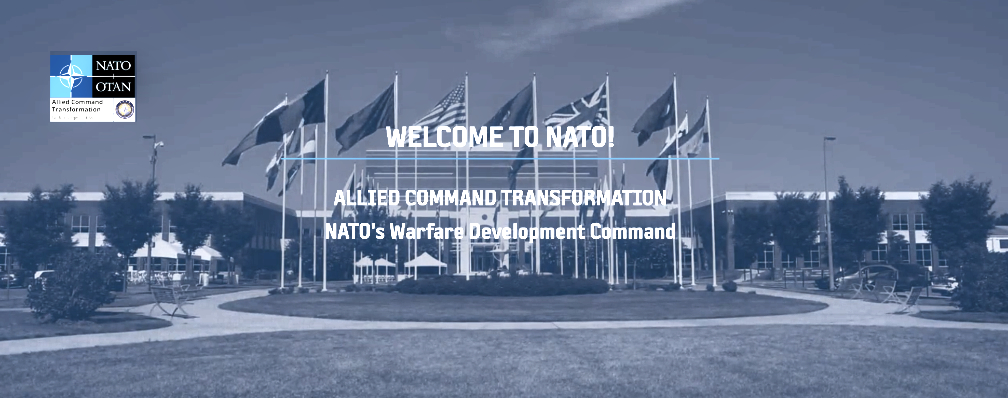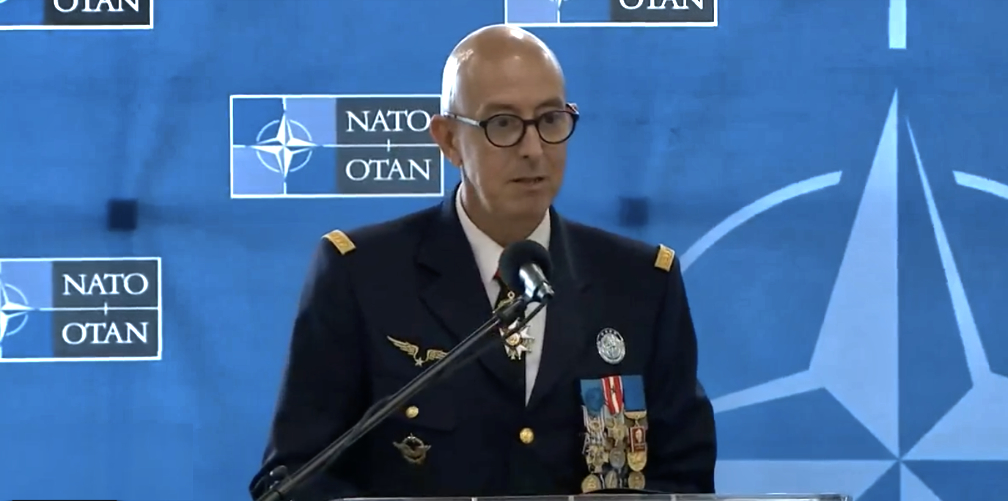
General Philippe Lavigne (pictured below at the ceremony) has relieved General André Lanata as Supreme Allied Commander Transformation during a change of command ceremony in downtown Norfolk, Virginia, on September 23.

NATO Secretary General Jens Stoltenberg presided over the ceremony, highlighting the critical strategic role Allied Command Transformation plays in the Alliance today.
“This is a pivotal moment for our Alliance, and ACT is preparing NATO for the next decade and beyond,” said Stoltenberg during the event. “Gen. Lanata, let me highlight your significant contribution to the development of the NATO Warfighting Capstone Concept, which will guide our Alliance capability development to 2040. Your work has left its mark on this Alliance, and will be taken forward by your successor as we continue to adapt.”
General Lavigne, former Chief of Staff for the French Air Force, began his career as a fighter pilot. Lavigne has more than 2,750 flying hours and has flown more than 56 war missions during operations over the former Yugoslavia and Iraq. Among other leadership roles, Lavigne most notably commanded Kabul International Airport in Afghanistan and all the French forces engaged in Operation Pamir. He supervised the smooth transfer of responsibility of the airport from Allied forces to the civilian authorities. General Lavigne is Officer of the Legion of Honor and Commander in the National Order of Merit. He is decorated with the Military Valor Cross.
“NATO’s Transformation and warfare development is not an empty concept,” said Lavigne, “but the only possible way to collectively overcome threats of all kinds, be it terrorism, conventional and nuclear, or emerging threats from new domains like Cyber, Space or Cognitive warfare…I am here to serve NATO, and I will devote, as always, all my will.”
Supreme Allied Command Transformation (ACT) is one of NATO’s two strategic commands, created in 2003 to ensure the Alliance has the requisite thinking, capabilities and education and training to keep a military edge against any and all adversaries.
“ACT changes things, it leads transformation and contributes to NATO’s adaptation,” said Gen. Lanata during his farewell remarks. “But transformation is not a destination; it’s a journey, one that continues over and over to facilitate adaptation, required by a profoundly evolving environment.”
ACT harnesses innovative principles to enhance NATO’s ability to respond to threats with a speedy and agile military instrument of power. ACT ensures that NATO’s war fighting capabilities remain relevant, provides an indispensable understanding of current and future security challenges, and contributes to the development of NATO doctrine, concepts and interoperability standards. The Command is also responsible for NATO’s training and education programmes.
NATO is the world’s oldest and most successful political-military Alliance, dating back to 1949. NATO promotes democratic values and enables its 30 member nations to consult and cooperate on defence and security-related issues to solve problems, build trust and, in the long run, prevent conflict. NATO is also committed to the peaceful resolution of disputes. If diplomatic efforts fail, it has the military power to undertake crisis-management operations.
